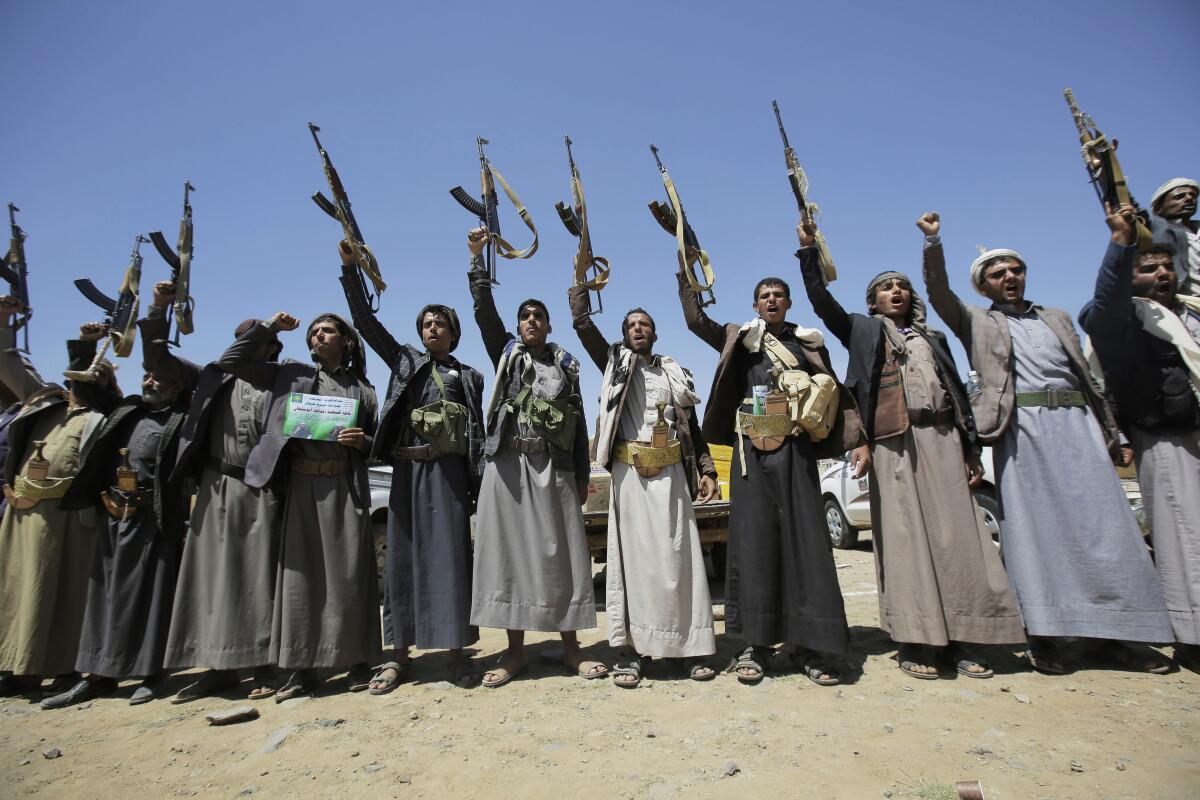Op-Ed: Vote in November to help the U.S. find its way in the world again

When Americans elect a president, they choose a commander in chief. For that reason, as they consider who should lead the nation, issues of war and peace are often front and center. Not this time. As the 2020 election approaches, domestic concerns — the COVID-19 pandemic, acute economic distress and demands for reckoning with pervasive racism — are crowding out questions related to the nation’s global role.
But to ignore what is happening beyond our borders is to overlook this important truth: Since the end of the Cold War, now three decades ago, the United States has lost its way in the world. Under President Trump, things have only gotten worse.
Today, foreign policy defined as a principled and consistent pattern of behavior has ceased to exist. All that remain are noise and gestures, baffling our traditional allies and delighting those eager to take advantage of the bedlam that currently prevails in Washington.
Trump’s commutation of Stone’s sentence can’t keep the government from demanding answers from him about Russian interference in the 2016 campaign.
The essential problem is twofold: Those responsible for charting post-Cold War U.S. policy have misconstrued core U.S. interests. And they have vastly overestimated and therefore recklessly misused American military power.
In no part of the world is this dual failure more in evidence than in the Middle East. The proof? The trillions expended since 9/11 to eliminate terrorism and spread liberal values — with next to nothing to show in return. With the possible exception of Vietnam, no foreign policy initiative in all of U.S. history can match the global war on terrorism for producing results so radically at odds with declared intentions.
So there is a pressing need to reassess U.S. policy toward the Middle East. Waiting for a more convenient occasion is not an option.
Any such reassessment will necessarily begin with a realistic appraisal of U.S. interests. Two stand out: protecting the United States from attacks emanating from the region and promoting the free flow of commerce. Ensuring access to Persian Gulf oil per se does not qualify as a vital interest. In the near term, we don’t need the oil — our own hemisphere contains ample reserves. In the longer term, we shouldn’t want it, the necessity of shifting to renewables having become irrefutable.
Realism does not mean walking away from the region. It does mean approaching the Mideast in different ways.
A primary goal of U.S. policy should be to restore stability to a region that Washington’s misguided affinity for coercive regime change has itself destabilized. Stable in this context is synonymous with mutual coexistence. “Peace” in the Middle East won’t look like peace in Europe. But simply encouraging a cessation of war and promoting greater economic integration constitutes a worthy goal.
To move toward that goal, the United States should refrain from picking sides in regional disputes, most prominently the rivalry pitting Saudi Arabia against Iran. While pouring weaponry into the region may benefit American arms manufacturers, the net effect is to underwrite violence, with innocents all too often caught in the crossfire. Yemen today offers a case in point.
To promote stability, the United States should reposition itself as an honest broker, committed to solving problems through diplomacy and dialogue. That implies a willingness to talk to all parties — no pariahs. To signal this shift toward diplomacy, the Pentagon should immediately commence a deliberate withdrawal of U.S. forces from the region.
Does this imply that the United States should turn a blind eye to violations of human rights and forgo efforts to promote democracy? Not at all. But in such matters, America leads most effectively when it does so by example. The Black Lives Matter movement serves as a sharp reminder that we have our work cut out for us here at home. As for governments abroad that abuse human rights, the United States should hold all offenders equally accountable. Just as there should be no pariahs, so too there should be no free passes.
A new paradigm for U.S. policy in the Middle East ought to revisit the terms of the U.S.-Israeli special relationship. Israel in 2020 is not the young and vulnerable nation with which the United States forged a special relationship decades ago. It is today vastly stronger and its enemies fewer and weaker. The only nation in the Middle East possessing a nuclear strike capability, Israel also has the region’s most effective military forces. It is fully capable of defending itself by itself, without a $3.5-billion annual subsidy courtesy of the American taxpayer.
Disregarding U.S. objections, successive Israeli governments have pursued a policy of creating illegal settlements on the West Bank. In doing so, they have effectively eliminated the possibility of creating a viable Palestinian state. The United States should not ratify or endorse that result.
In sum: No pariahs, no free passes, no special privileges.
And no magical solutions. There are none. But there is no ignoring this reality: The existing architecture of U.S. foreign policy is nearing collapse, and nowhere more than in the Middle East. Acting now to devise a replacement is imperative. The election of 2020 provides the right occasion to do just that.
Andrew Bacevich, a contributing writer to Opinion, is president of the Quincy Institute for Responsible Statecraft, which has just published “ A New U.S. Paradigm for the Middle East.”
More to Read
A cure for the common opinion
Get thought-provoking perspectives with our weekly newsletter.
You may occasionally receive promotional content from the Los Angeles Times.










